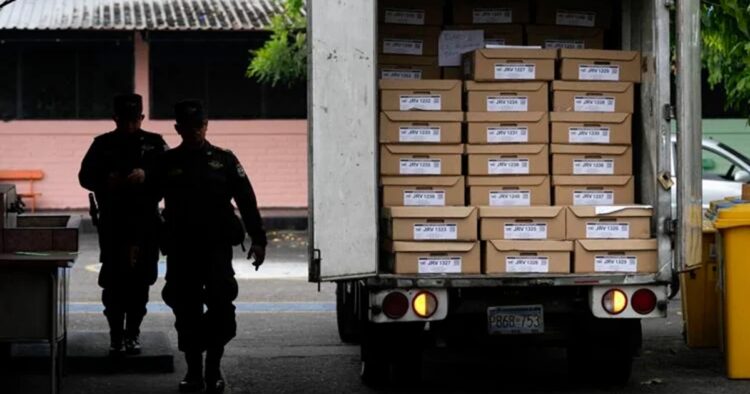Crowds Gather in Anticipation: Salvadorans flocked to the capital’s central square to celebrate the anticipated reelection of President Nayib Bukele, even before any official results were declared. With high approval ratings and little competition, Bukele seemed poised for a second 5-year term as president.
Despite official results not being announced, Bukele asserted on the platform X that, “according to our numbers,” he had won just two hours after polling places closed. Standing on the balcony of the National Palace, he hailed the partial, preliminary results as a historic moment, framing the election as a “referendum” on his administration.
Known as the “world’s coolest dictator,” Bukele gained fame for his tough stance against gangs, resulting in the arrest of over 76,000 individuals since March 2022. Critics have raised concerns about due process, but many voters expressed a willingness to compromise on certain democratic aspects to curb gang violence.
Although El Salvador’s constitution prohibits reelection, Bukele’s party, New Ideas, maneuvered to allow him to run for a second term. Critics argue that he has undermined the country’s checks and balances. Despite the controversy, Bukele’s face adorned downtown San Salvador, reflecting his significant popularity.
Supporters, like Delya Rodriguez, celebrated in the main plaza, expressing loyalty to Bukele. Rodriguez, a chicken farmer, noted the president’s uniqueness and defended him against criticisms, stating that traditional parties had not done much for people like her.
Bukele positioned the vote as a turning point for El Salvador, claiming that the country had set an example for the world in solving problems with determination. The Supreme Electoral Tribunal began releasing partial results, showing Bukele with a significant lead over his closest competitor.
Bukele and his New Ideas party are increasingly viewed as a case study for the global surge in authoritarianism. Analysts note a growing rejection of democratic principles and human rights in favor of authoritarian populism, with El Salvador being a notable example.
While Bukele’s administration is credited with reducing violence, critics like Reinaldo Duarte express concerns about the stalled economy and transparency in managing public funds. Duarte, an informal worker, plans to vote against Bukele, reflecting the challenges faced by informal workers.
In the lead-up to the election, Bukele opted for a unique approach, making no public campaign appearances but saturating social media and television with a simple message: a win for New Ideas was crucial to maintaining the fight against gangs. This strategy has sparked discussions about the evolving nature of political campaigns.
In summary, El Salvador awaits official results, but the enthusiastic anticipation of Bukele’s reelection and the broader implications for the country’s political landscape and global trends in governance are already generating discussions and analyses.

















Comments